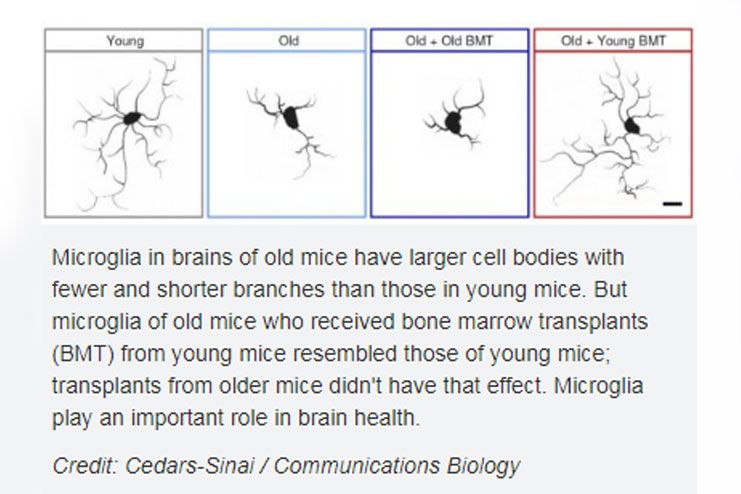Affiliate Disclaimer
Some links in this article are affiliate links. We may earn a small commission if you make a purchase through these links, at no extra cost to you. We only recommend products we find useful to our readersBone marrow has been tested out for its potent benefits and if you are here wondering what it is that makes it a good enough option, there are new studies popping up every day with more evidence. With the overlapping effects of the young bone marrow, it is not really surprising that the transplant with young bone marrow has been found to reverse impacts of age related hampering to the memory and learning skills in the mice.
A new study (R) conducted by the researchers from the Cedars-Sinai Medical Center has found that the transplantation of the bone marrow of young lab mice into that of the old lab mice did end up preventing further cognitive decline in the mice. This was found beneficial in rejuvenating their memory and learning skills altogether.

Helen Goodridge, PhD, associate professor of Medicine and Biomedical Sciences at Cedars-Sinai, who is also the senior author of the study stated saying that while prior studies included the blood transfusion to reverse the impacts of the age related impacts, there was no particular reason behind the same.
She further stated while the prior studies have been very vague about their possibility and mode of action, the same is not the case with this one. This specific research does provide with all the necessary information required as such for the same.
Given the fact that the researchers have found similar mode of action happening in humans as well, this study is believed to have impactful benefits in the gradual development of the neurodegenerative diseases, including one of the most common ones, Alzheimer’s.
In this specific study, the researchers transplanted the bone marrow from 4 month old mice to 12 month old mice. Another group of 12 month year old mice received the bone marrow transplant from the mice their own age.
The same was then kept under observation for 6 months later than. The mice were subjected to standard laboratory tests of activity level as well as learning along with that of the spatial and working memory. They found that the mice that were given the young bone marrow outperformed the ones who were given the old bone marrow. Not just that, they also outperformed the standard control group who were not given any kind of transplants.
In order to deduce the mechanism behind the heightened activity, the researchers looked into the hippocampus of the mice and found that the mice who received transplants from young mice retained better neural connections in them in comparison to the others. They were found to have better synapses in comparison to the other group, reinstating the fact that synapses are crucial to the brain performance.
On further in-depth analysis of the situation, the researchers found that there are other influencing factors in the same. They found that the cells that were made by the young bone marrow ended up reducing the activation of the microglia which is a type of immune cell in the brain.
While microglia has the primary impacts in supporting the neuron health, the same was also found to have impacts in overactivity which ends up causing disconnection between the synapses. When the number of overactive microglia is lesser in comparison, the same does ensure better neural health and more synapses.
Clive Svendsen, PhD, director of the Cedars-Sinai Board of Governors Regenerative Medicine Institute, professor of Biomedical Sciences and Medicine, who is also the co-senior author of the study stated saying that we are entering a genre that is believed to expect more and more people suffering from Alzheimer’s disease in the coming days which has the potency of inducing a pressure on the health system.
He further clarifies that the main aim behind the work is to indicate the fact that the cognitive functioning in the mice can easily be rejuvenated by providing them with young blood cells which has direct impacts on the brain to function better with the more prevalence of the synapses.
When it comes to the same being done as clinical trials, the process is not just seamless yet. Given the fact that the bone marrow transplants are a tough nut to crack, it is believed to take some time before the clinical trials are put into action. Nevertheless, these findings are believed to have better impacts on the future studies.


















